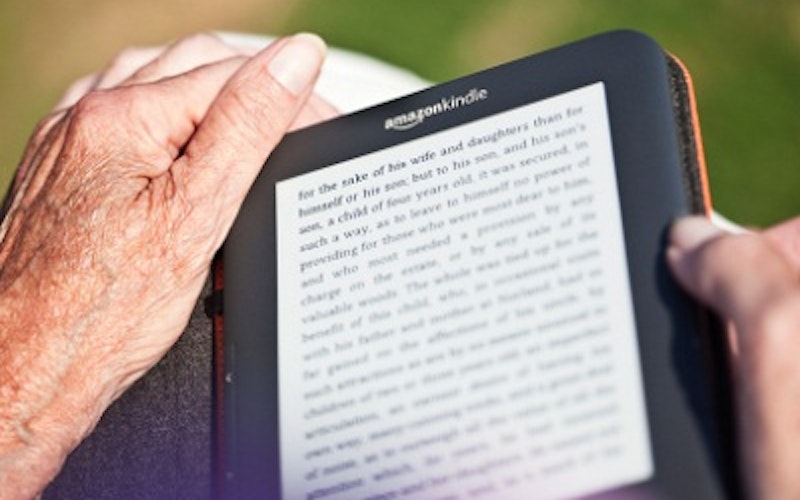
Culture At Large
E-reading the Bible
Earlier this month, Slate published an excerpt from Andrew Piper’s new book, Book Was There, with this provocative subtitle: “E-reading isn’t reading.” Piper argues that reading on an e-reader is so fundamentally different from reading a codex (the term for a book in its printed and bound form) that it does not qualify as reading in the same way.
Anybody who’s owned or even looked at an e-reader could list for you some important differences in the experience, some of which Piper highlights. It’s lighter and thinner than most hardcovers. You cannot flip through an e-book like you do a printed book. You don’t perceive your progress through the text with the physical sensation of flipping pages, with weight moving from the right to the left.
Piper takes this argument further, however. He believes that the codex itself is a fundamental aspect of much that we appreciate about modern society, including Christianity. He uses St. Augustine’s account of his own conversion, through reading a Bible in codex, as a primary example. He writes, “In aligning the practice of book reading with that of personal conversion, Augustine established a paradigm of reading that would far exceed its theological framework, one that would go on to become a foundation of Western humanistic learning for the next 1,500 years.”
I recently argued to the students in my Mass Media and Society class along similar lines, that without mass-printed bibles, the Protestant idea of “priesthood of all believers” was not possible. It relies on the reality of broad literacy and available Bibles so that all Christians could read them on their own. With that example in mind, I agree that Christianity as we know it today was shaped by the peculiar characteristics of reading books.
I think if we tie our understanding of faith too closely to a particular mediated experience of it, we limit God.
I’m more hesitant to agree, though, that by transitioning to other forms of reading all we experience is loss, and that this loss is somehow fundamental to culture or to our faith. I think if we tie our understanding of faith too closely to a particular mediated experience of it, we limit God. People of God were faithful before any of the Bible was written down. The early church thrived and began our tradition before the codex was invented. Surely Christianity can survive new forms, just as it survived and thrived with the media changes at Augustine’s time and at Martin Luther’s.
Perhaps the new question, then, should be this: how might interacting with the Bible in electronic form accent our faith in a new way? What might be the dangers and what might be the new blessings? For example, I wonder if a small screen and a “verse of the day” format might enhance the already prevalent tendency to read one verse outside of its context. On the other hand, the ease of cross-referencing might expand our sense of Biblical context, and help us make connections between testaments.
What do you think? Do you read your Bible and other books on an e-reader? How does it change your experience? What temptations should Christians who study the Bible electronically look out for? What temptations does a codex Bible hold that an electronic Bible might not?
Topics: Culture At Large, Science & Technology, Technology, Theology & The Church, The Bible